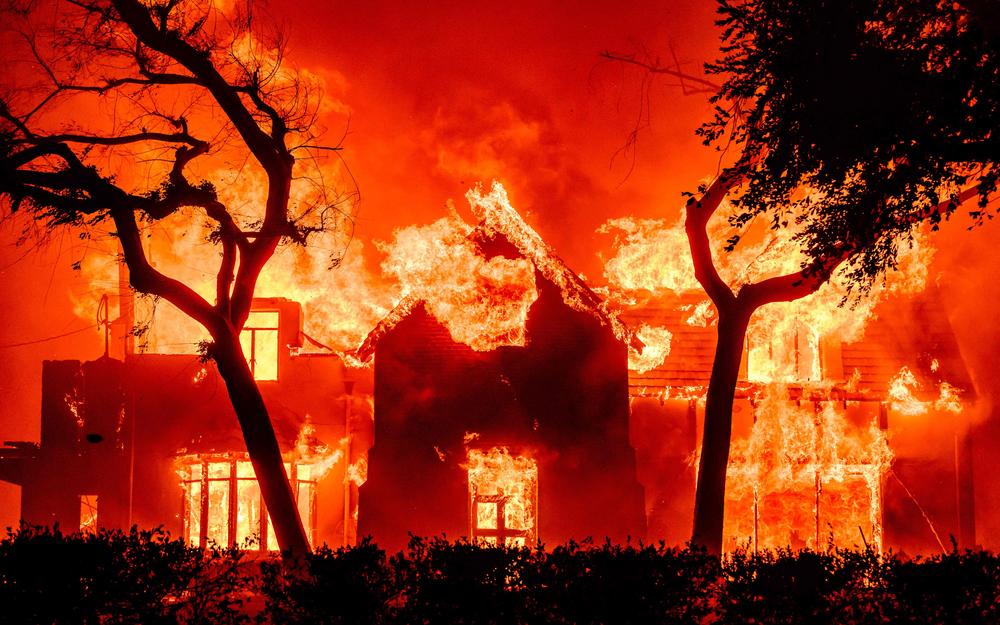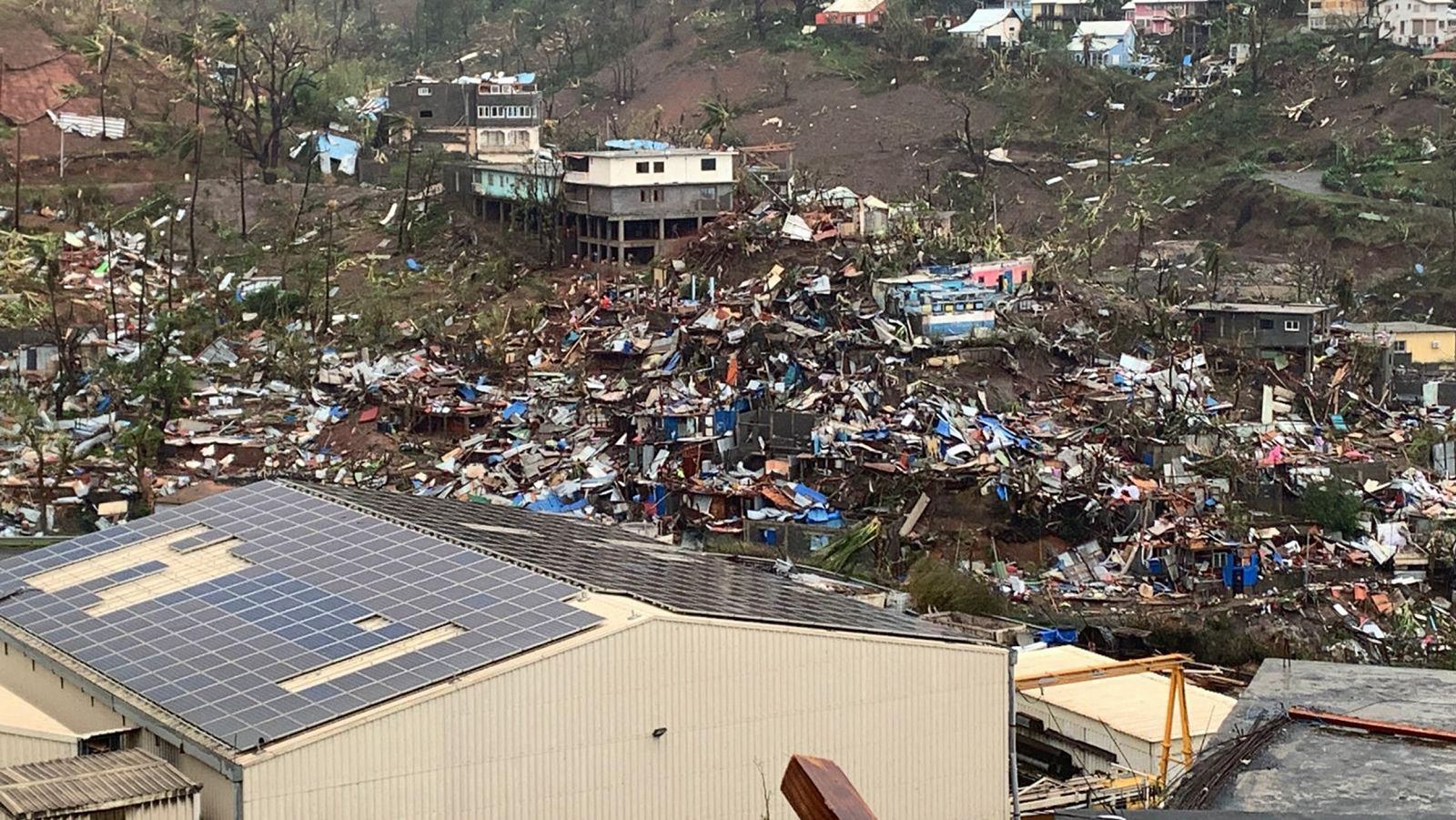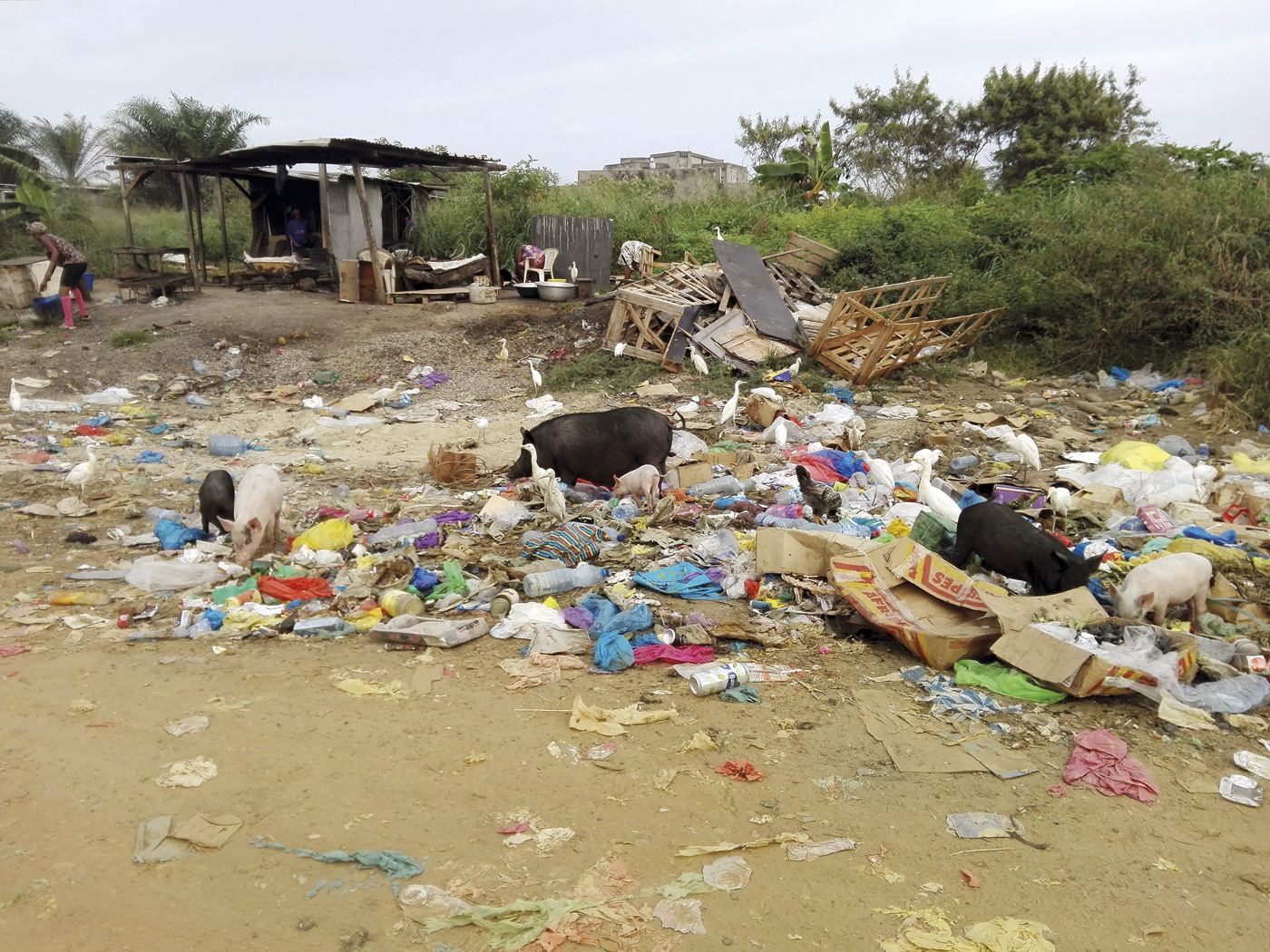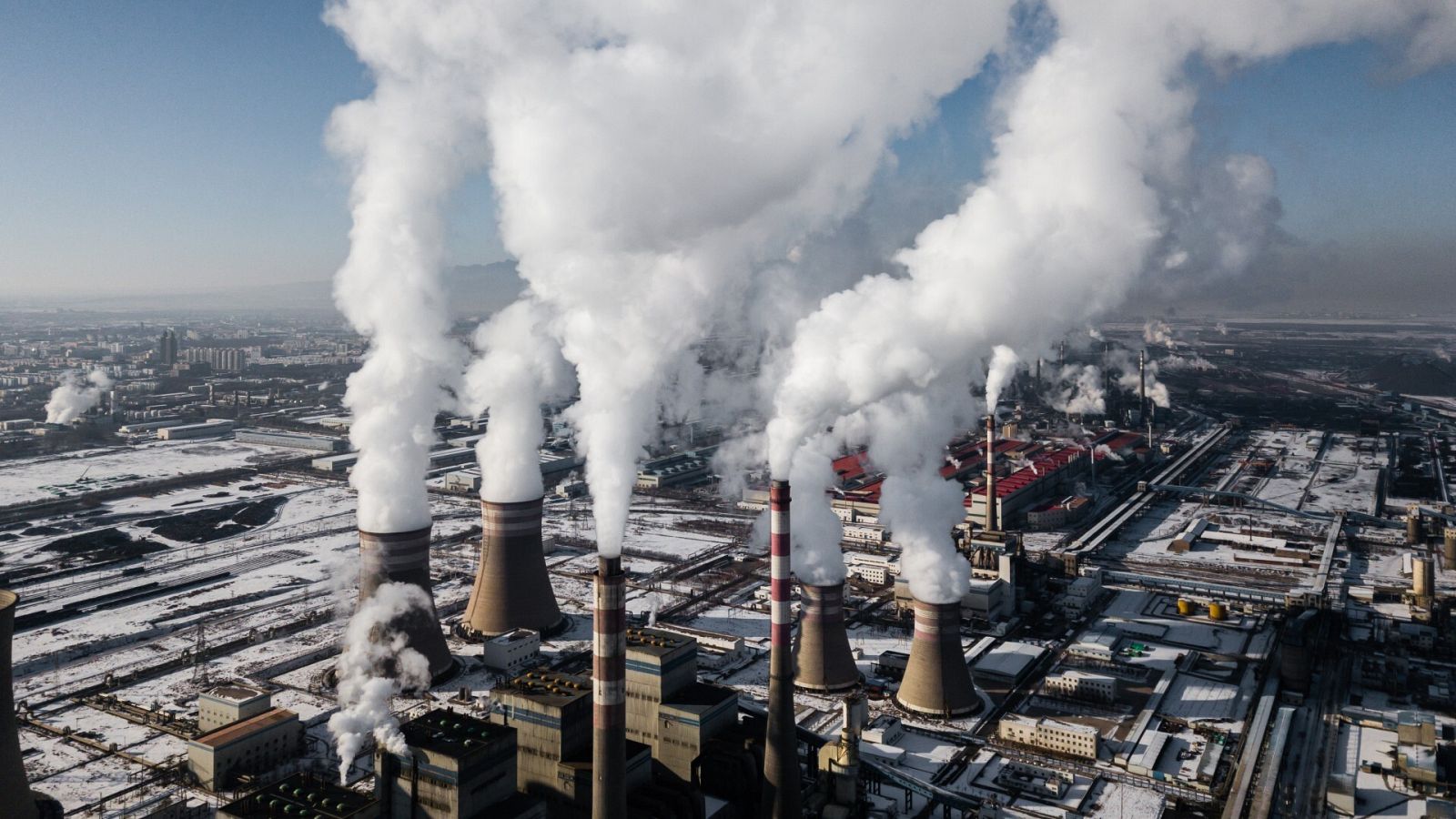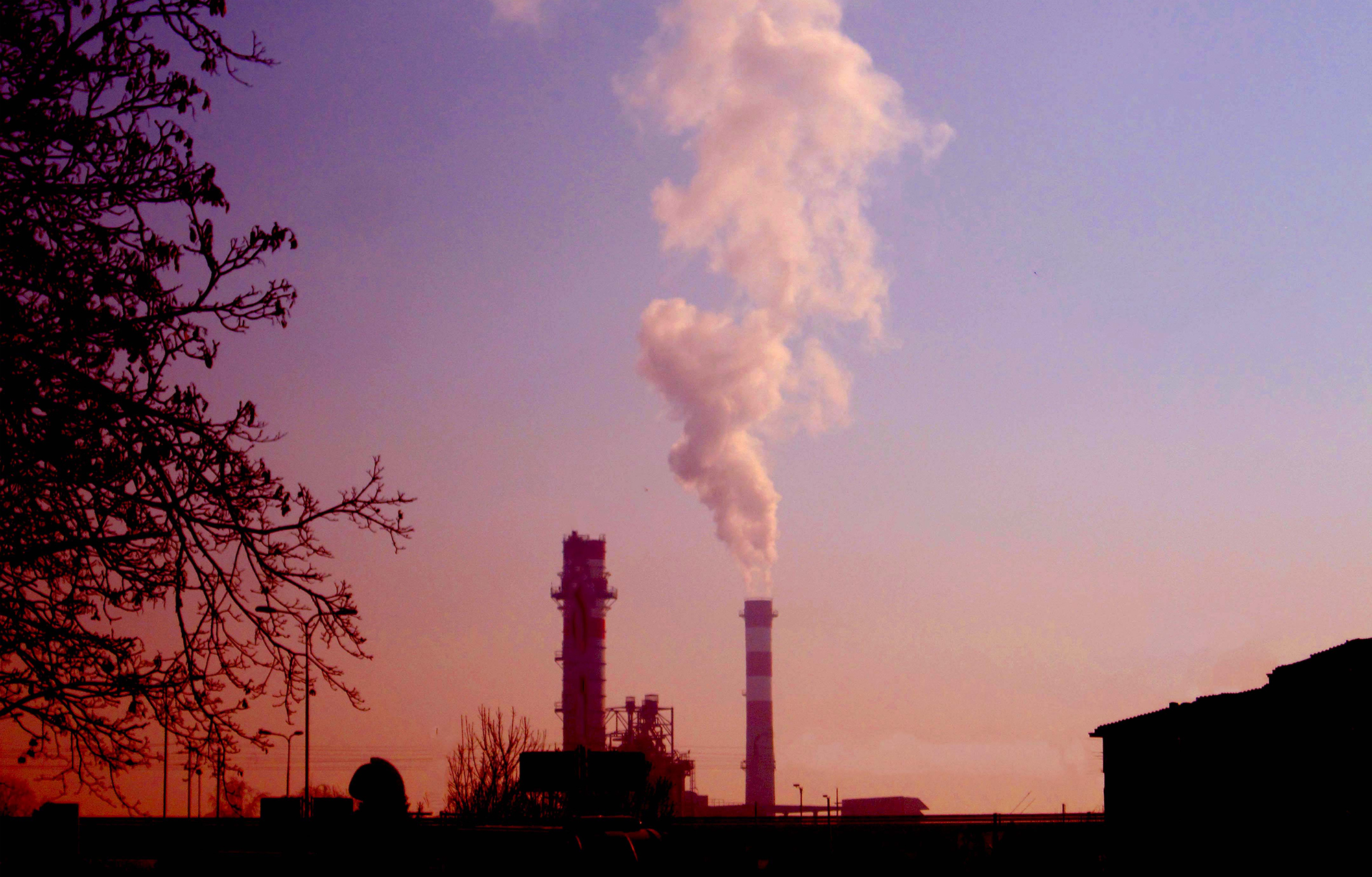"Either we rethink our consumption and production models or we're going to go wrong."
- Petxarroman (Lasarte-Oria, 1973) A trip to the unknown. He has just published a book on the world, the climate and the ecology in crisis. In Berria he is a journalist on environmental issues who, in his view, with the changes taking place "we are entering an unknown area".

Several barriers have been put in place to control greenhouse gas emissions, one of which is the year 2030. The objective is to reduce joint CO2 emissions by 25% by 2010. Can you see it?
It will be quite difficult. The use of coal, for example, should change radically. In the United States and Europe this use has fallen a lot, but in countries such as China or India, for example, it is still used a lot. The Paris Agreement will also come into force shortly, but the measures there are are not as strong as the current ones. Scientists told us that throughout this decade we had to cut gas emissions by 7-8 percent every year, and yes, because it's predicted that we'll do it this year, but the economy has stopped. It has not been achieved in the rest of the years.
After all, the world continues to live almost the same, so living the same and producing a huge change, that is a bad thing.
There are some changes in trends, especially in the field of renewable energy. From the point of view of investment, the creation of a renewable energy plant is already cheaper than coal. The thing is, coal plants are still being made and they're going to take a few decades to make them profitable. Capitalism has chosen to dress green, but looking at general trends, or rethinking our consumption and production models, or walking badly.
You've been with a lot of experts in making the book. There is also everything among them, but, in general, do you see them optimistic?
Scientists are realistic and very data-related, so on the one hand, I would say that they have a point of realism and pessimism; on the other hand, looking forward, the human being has a point of optimism, and I think they too have it. The planet is warming up, and that's going to have huge consequences at all levels. What kind of consequences? That's what we still don't know, we're entering an unknown terrain and from there the title of the book.
Super Sur, incinerators, TAV, eucalyptus, Donostia Metro... On the one hand, we have this developmental model and, on the other, the Basque Government claimed the climate emergency last year. Are they compatible?
They are not compatible. After all, we change the model or we go wrong, and it seems that some do not want to answer that fundamental question. The PNV has recently negotiated the budgets of the Government of Spain and has made its approval conditional on the abolition of the diesel tax. And if fuels are not taxed, it will be difficult to achieve the targets. The Basque Government is still on the road of moving forward, and one example of this is that gas is still being sought, for example, in Álava. The examples that you mentioned are those relating to the cement model, which has been very much developed here, which is why I say in the book, on that journey of the energy transition, that we are going in the back wagon of Europe.
.jpg)
.jpg)
Is there anything that has caught your attention especially when making the book?
The pandemic itself. The pandemic is an appeal to rethink our relationship with the environment and nature. This is because of the tendency we have to destroy ecosystems, and if we don't change it, we will live in an increasingly difficult and dangerous world. It is worth emphasising the issue of justice: we live in a very unjust world and not everyone is prepared equally to face a world full of risks. Climate change forces millions of people to leave their countries in Asia and Africa, according to the UN, which could reach 300 million in half a century.
Among the media, of course, there is everything, but, in general, are we broadcasting to society the gravity that really exists?
Since the signing of the Paris Convention, I have noticed a certain degree of change. Capitalism needs a new green costume to reinvent itself, and the big media around it has aligned itself with that New Green Deal. Le Monde, El País, The Guardian... but without that radicality that demands the moment, otherwise the demands for a climate emergency such as that of the government we have mentioned above would be much more criticized. Also in society, especially thanks to the mobilizations of the youth of 2018-2019, it has taken another force on the agenda.
And the citizen is also there. How should it act?
The establishment makes us guilty of the situation and yes, we all have a certain responsibility, but not all of us have the same responsibility. The average citizen can take into account their consumption, how much and how they travel... but it is not he who decides to impose diesel taxes. Political decisions are needed here, macros. It is the most responsible who pollute the most, the big rulers, the multinationals, etc. On the other hand, the world changes as social movements change, and citizens and collectives can play a major role in this.
In this report you can read the report we have made with the book: Half degree that brings us closer to smoking
There was no one or all. That we all suffer at least if the necessary changes are not made so that no one suffers the climate emergency. You – reader – I – Jenofá-, they – poor – and they – rich. The fires in Los Angeles did not give me satisfaction, but a sense of... [+]
The understanding and interpretation of the mathematical language is what is important in the learning process, at least it is what we say to our students. The language of mathematics is universal, and in general, the margin of error for interpretation tends to be small. We... [+]
Recently, when asked what the climate emergency consisted of, a scientist gave the excellent answer: “Look, the climate emergency is this, you increasingly see on your mobile more videos related to extreme weather events, and when you realize, it’s you who are recording one... [+]
In recent weeks it has not been possible for those of us who work in architecture that the climate phenomenon of Valencia has not been translated into our work discourse. Because we need to think about and design the path of water in decks, sewers, plazas and building parks. We... [+]








